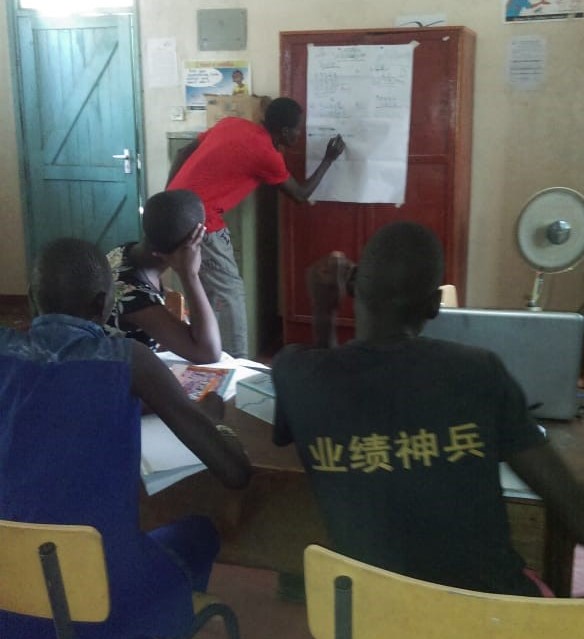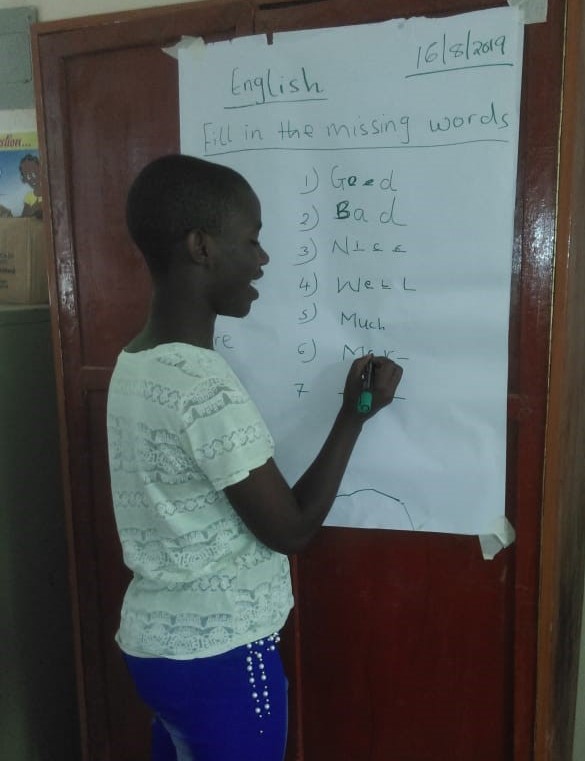Empowering children & youth with disabilities in Kakuma
Empowering children & youth with disabilities in Kakuma

The project in brief
Implemented by
Jesuit Refugee Service (JRS)
Country
Nairobi - Kakuma - Kenya
Duration
1994 - Ongoing
Description
Engaging and impacting mentally and developmentally disabled children and youth through informal learning strategies, functional skills training and psycho-social support to families.
Project aims
To enhance the psycho-social well-being of children with developmental intellectual and cognitive disabilities by providing functional skills training, rehabilitation and capacity building for caregivers.
Resources used
Sustainable funding has been one of the main requirements for the timely and efficient implementation of the program. Consistent donor funding contributed immensely to the achievement of the objectives set for the program.
Existence of legal frameworks and policies in the country that guide and support the inclusion of persons with disabilities in all areas including education, health, equal employment opportunities among others. This has created a conducive environment to implement the program. Such laws include; Persons with disability Act 2003, Basic Education Act of 2013, The National Special Needs Education (SNE) policy of 2009.
Additionally, the existence of an infrastructure such as JRS transitional learning centres across the camp that ensured that beneficiaries had child friendly, protection spaces, a trained workforce, and the advantage of JRS long-term presence in Kakuma, were very important to the implementation of the program.
Partners
- Humanity and Inclusion
- International Rescue Committee
- Lutheran World Federation
Challenges and how they were overcome
Challenges
The expansion of the camp to Kalobeyei settlement in 2016 made it a challenge to reach the persons of concern since there were very limited resources to serve the populations in the new settlement.
Limited school infrastructure across the camp thus increasing the pressure on the existing JRS centres as the numbers of children with disabilities continue to increase against paltry resources.
How they were overcome
Established strong partnership with the local government, partner agencies, and prospects to extend services to Kalobeyei settlement.
Results of the Good Practice
- Integration of children with special needs from transitional JRS centres to formal regular schools from the host community and the camp.
- Improved independence through functional skills training and rehabilitation in the centres and in the community for over 533 children and youths in 2019.
- Increased access to livelihood opportunities by children and youths with disabilities
- Inclusively, over 2000 community members reached from host and refugees, in 2019 through disability awareness campaigns.
- Over 270 caregivers reached in capacity building through trainings and support group sessions
- Establishment of a strong referral mechanism for reporting cases of child abuse and exploitation.
How the project meets the GCR Objectives
Objective 2: Enhance refugee self-reliance
The project focused on the second objective of the Global Compact on Refugees, enhancing self-reliance, with a specific focus on persons with intellectual and developmental disability.
Self-reliance is targetted through training on functional skills that equip persons with disabilities with skills for independence. Persons with disabilities are further engaged in vocational trainings.
This has increased opportunities for livelihood to persons benefiting from the program.
Children with intellectual disabilities tend to take a lot of the time of caregivers and parents. The program allows them to have a place where children can receive rehabilitative care while allowing the parents and caregivers time to engage in livelihood opportunities. Psycho-social support is embed in the program. As such, parents and communities are educated reducing stigma. This results in improved sense of self, their abilities and coexistence in the community.
There is continue linkages to educational opportunities through scholarships, and has bridged relevant employment for persons with disabilities and access to livelihood.
Next steps
We hope to continue with the project in the coming years.
Submitted by:
Lilian Agesa, Special Needs Education Coordinator, Jesuit Refugee Service (JRS)




